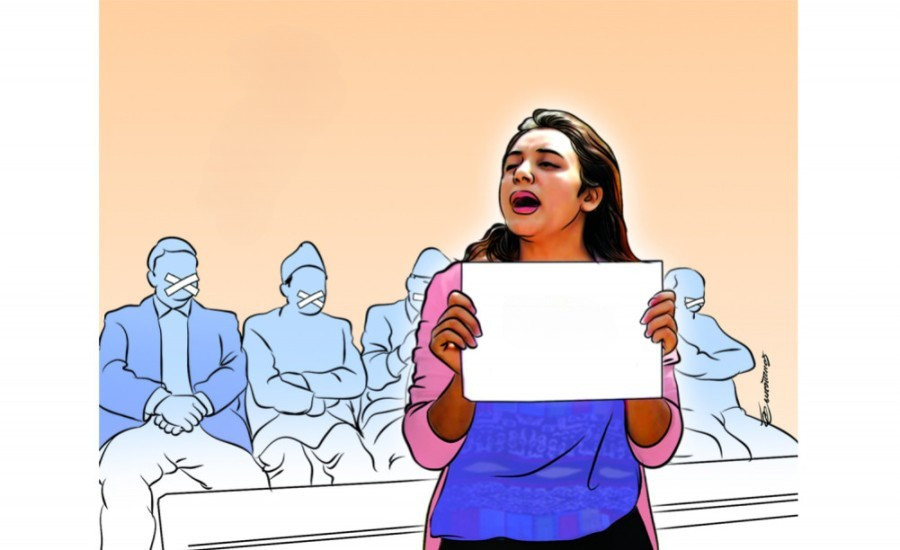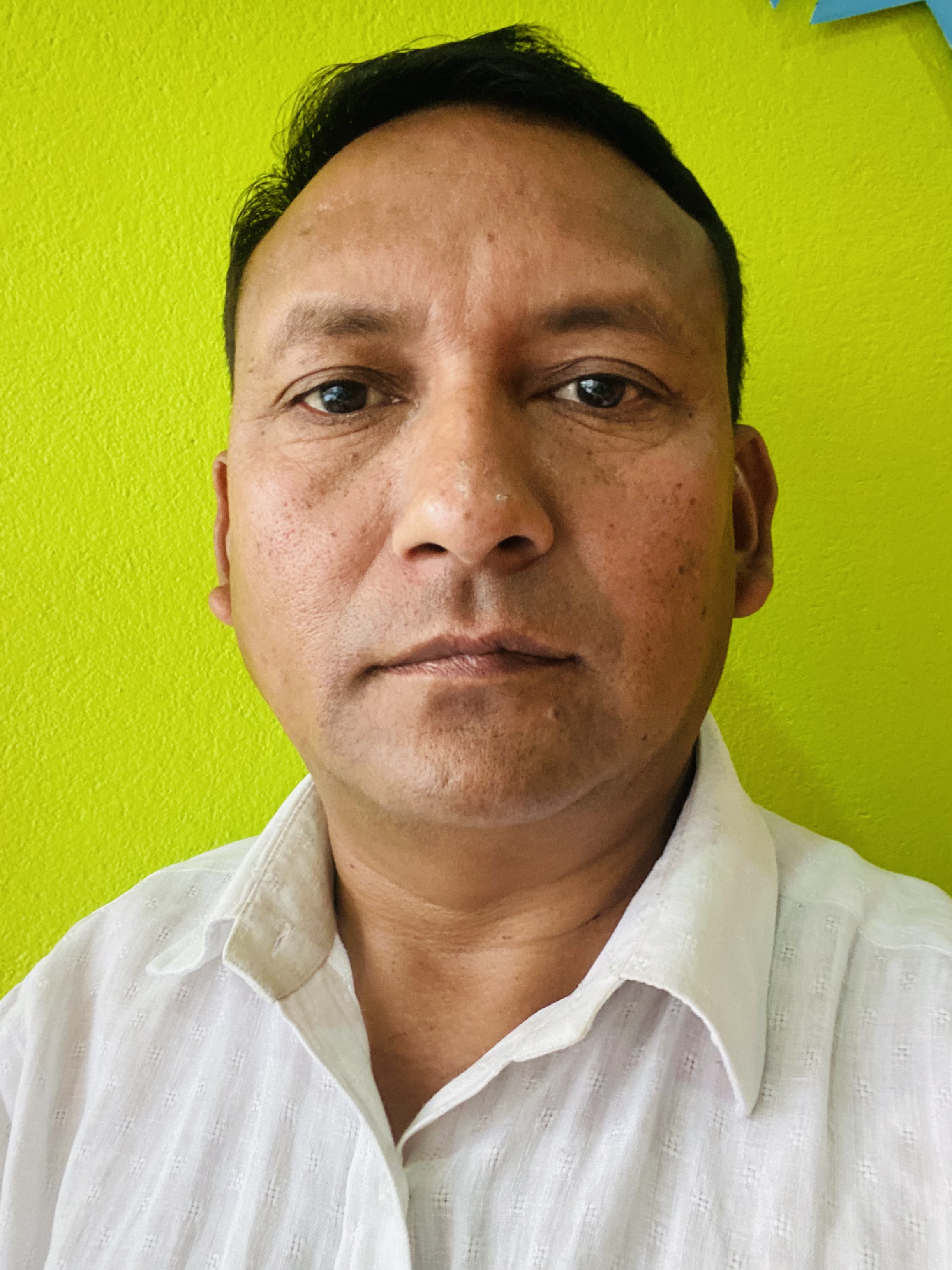Columns
Don’t exonerate them
The home minister and the IGP must resign if they have abused power in the Sarlahi case.
Mitra Pariyar
On February 4, 2025, Naya Patrika daily published a front-page report that angered the Dalit community and unsettled, to some extent, Home Minister Ramesh Lekhak, Police Chief Basanta Bahadur Kunwar and perhaps the entire government and police force.
The report was entitled “Excesses on a Dalit youth for marrying inter-caste under instructions from the Home Minister”. It was a story of the long and incredible suffering of the lovers Satyendra Ram (a Chamar man) and Neha Rauniyar from Sarlahi district due to the allegedly irresponsible and illegal actions of the police officers.
The issue has been debated to a degree in the federal Parliament. Some Dalit activists, including ourselves, have protested on the streets and social media and lobbied with senior government officials.
We should keep raising our voices for justice. The home minister and the Inspector General of Police (IGP) have no right to stay in power if the allegations are proven. In the meantime, this remarkable story offers a useful lens to understand how casteist the Nepali state is, how anti-Dalit political parties have been and why mainstream Dalits have lost their powers to fight back.
Reported story
According to the news reports, the father of the upper-caste woman is a member of the Nepali Congress Party with strong ties to Lekhak. He requested the senior minister to use police powers to separate his daughter from her so-called untouchable lover and give him a hard time.
Lekhak allegedly ordered the IGP Kunwar to deploy his men to do what was required to punish Satyendra and keep him away from Neha.
On the surface, Lekhak was simply doing his party members a favour. But in reality, this was a highly immoral and criminal act. The highest government authorities were directly intervening to restore the old caste order at the expense of constitutional and legal provisions against caste discrimination.
Under instructions, the police pursued the intercaste lovers, threatened the Dalit man and filed fake legal cases against him in the courts, such as marriage with a minor and trafficking in women and girls. There was so much intimidation, threatening and bullying that the lovers were forced into hiding.
The Nepal Police didn’t leave them alone even when they visited Mumbai, India. As though they’d committed a serious crime, some police officers were dispatched across the border to have them arrested and returned to the country. However, their discreet mission narrowly failed because of the objections from the Indian Police at the Delhi airport.
The lovers then secretly returned to Nepal and got married in a court. The police again tried to make the marriage null and void through separate court cases, including marrying a minor, but the Supreme Court finally validated their union.
The married couple still live in hiding. All the media coverage and show of support and solidarity from at least some sections of the Dalit community may have provided them with a degree of mental succour, but they continue to live in great fear and uncertainty.
Efforts to exonerate
As criticism grew on social media and in the mainstream media, the Home Ministry and the Nepal Police issued statements refuting the published reports. The ministerial press release went as far as to state that Lekhak wasn’t even aware of this love affair and marriage.
Both statements, however, offered weak defences. They failed to provide solid evidence to counter the reports of their excesses on a Dalit youth. Nor did they commit to investigating the matter independently. Prime Minister KP Sharma Oli and Nepali Congress chair Sher Bahadur Deuba have not spoken on this issue.
A Dalit wing of the Nepali Congress also issued a media release, expressing worry and demanding justice for the victims. Reading between the lines, however, the statement wanted to exculpate their leader. How pathetic!
Then, after much pressure from the Dalit community, the Dalit Commission discussed with the IGP at their office in Kupondole, Lalitpur. Dalit commissioners interrogated the IGP about his alleged involvement and asked for the safety and security of the victims.
The Dalit Commission was established through an act in 2017 as an independent and constitutional body. Its core responsibility includes investigation into exactly these kinds of abuse of state powers to suppress the victims of casteism and protect criminals involved in caste violence, as well as to recommend proper actions to the government.
A separate commission was essential because the Human Rights Commission wasn’t deemed capable enough to defend Dalit rights. Unfortunately, as in many other cases, the Dalit Commission failed to fulfil its mandate this time, neglecting the issue for an unusually long time. When it did seem to do something, it didn’t dare question the home minister. This proves the popular perception amongst Dalits that the Commission has turned into a henchman of the party leaders.
Another missed opportunity
It’s good to see at least some members of Parliament, mostly Dalits, raising their voices for the investigation of Lekhak and IGP Kunwar in the House of Parliament. Although there should have been more united and persistent voices, this is still significant.
On February 17, a joint committee of the Dalit leaders and activists associated with various political parties met Lekhak and presented him with a memorandum. This is also a bit late, but welcome move.
However, according to the reports, these Dalits attached to the parties didn’t demand an independent investigation into the notorious case of Sarlahi, let alone ask the home minister to quit his position. Only a few of us independent Dalits hit the streets.
The Satyendra-Neha case offered Dalit activists a perfect opportunity to come together and organise large protests to hold the state accountable, pressure it to enforce the anti-caste laws, check for any misuse of state power and punish the victims. But that didn’t happen—not even this time, when the most influential member of the Oli Cabinet was accused of such an immoral and criminal act.
The main reason for this inability is the lack of Dalit unity, which has been impossible as most Dalits are active in the major political parties. One wonders why the Dalits active in the opposition parties, the Maoists, various other communist factions, Rastriya Swatantra Party and Madheshi parties, have also remained silent. Wouldn’t this be a perfect case to attack the government and the coalition partners?
I think this is explained by the Dalits’ excessive reliance on their party leaders. They seem to be so obedient to their upper-caste masters that they wouldn’t do anything unless instructed by the leaders. And, all upper-caste party leaders, irrespective of their ideological and regional backgrounds, have been utterly apathetic to the Dalit cause.




 11.12°C Kathmandu
11.12°C Kathmandu















